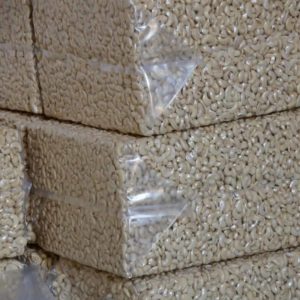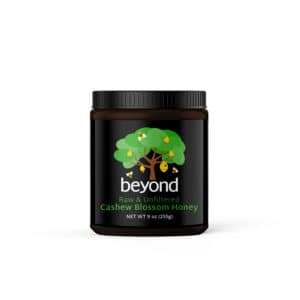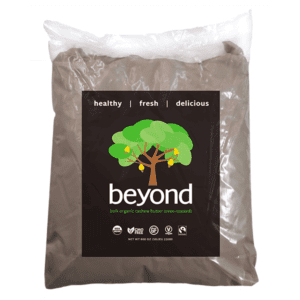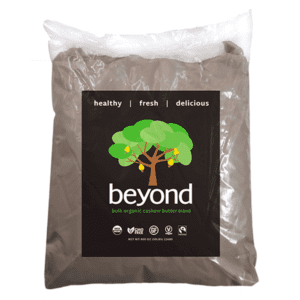As the world grows more aware of Celiac Disease and other sources of gluten intolerance, more and more flour alternatives have entered the market. Cashew flour allows for baking and thickening like traditional flour while also adding nutritional benefits not present in the typical bag of white all-purpose flour. Many people are hesitant to switch to a flour substitute or just don’t know how to choose the right one for them. If you’re curious about cashew flour’s origins, benefits, or uses, read on. You’ll be enjoying this wonder-flour before you know it!
The answer is unsurprisingly simple: cashews. This simplicity comes with a host of benefits, however. While most people probably don’t know what all-purpose flour is made of or its origin, cashew flour is a straightforward, one-ingredient alternative. This makes it easy to create at home while forgoing the need for processing or additives. These benefits make cashew flour a natural, healthy, and gluten-free alternative to traditional flour.
To make your own cashew flour at home, follow three simple steps:
Once you finish making your flour, store it in an airtight container in the freezer until you need it.
Of course, if you want to skip these steps, purchasing ready-made cashew flour is always a great option. Just make sure you check the ingredients to avoid preservatives and unnecessary additives.
On the whole, cashew flour works for any recipe that calls for traditional flour. In fact, it can serve as a direct substitute in most cases- meaning if a recipe calls for two cups of all-purpose flour, you can use two cups of cashew flour instead. Be sure to experiment with using more or less cashew flour to get the consistency you want!
Though cashew flour is most commonly used in baking, it’s also useful for breading chicken or thickening sauces. The flour’s rich, creamy texture translates well into dishes, so you may notice a slightly different taste than usual. Luckily, cashews are already a headliner in both sweet and savory dishes, so the flour adds dimension rather than an odd aftertaste.
Whether you want to make bread, cake, cookies, fried chicken, or soup, cashew flour serves the role of traditional white flour while also providing tons of benefits on its own.
Cashew flour’s nutritional benefits translate perfectly to any meal or baked good, making it an amazing gluten-free replacement for less healthy white flour. Here are just a few great reasons to add cashew flour to your diet:
With so many brands of cashew flour out there, how can you be sure you’re picking the right one? You need to look out not just for the right ingredients, but also where the cashews are sourced from. Too many nut companies exploit underpaid, poorly treated workers to farm cashews that get sent to forced laborers overseas before being packaged and sent to your local grocery store.
When you buy cashew flour from Beyond the Nut, you’re making a healthy choice for your body AND the world. Beyond the Nut keeps the entire cashew-harvesting process local, providing jobs to people in Benin, paying them fairly, and treating them with respect. Our mission is to empower local workers and help boost Africa’s economy without exporting cashews to other places.
No matter your reasons, switching to cashew flour is an amazing first step towards evaluating what you eat and making sure it aligns with your values.





Free shipping on all U.S. orders over $59! Dismiss
Reviews
There are no reviews yet.